On the stage of the Amsterdam opera house, a Soviet-era block of flats is sliced open in a cross-section. In almost every apartment, a television set shows images of crowds at a rally, cheering a vast Russian flag emblazoned with the Z pro-war symbol.
Meanwhile, police bang on the doors looking for dissidents, while another big screen on the stage shows very different images, evocative and melancholic photographs of provincial Russia. As the lights go down at the end of the performance, the final image is of a van in a lonely parking lot, a coffin loaded into the back.
This contrast between the Russia portrayed on Kremlin-run TV channels and the real Russia is at the heart of a new production of Modest Mussorgsky’s opera Boris Godunov, staged by one of the country’s most feted film and theatre directors, Kirill Serebrennikov. It premiered this week in Amsterdam and draws on many of the exiled director’s own experiences in Russia.
Serebrennikov pulls the action of Mussorgsky’s brooding opera, which follows the reign and death of an ill-fated 17-century Russian tsar, firmly into the present day. There are multiple implicit and explicit references to Vladimir Putin’s regime and the war in Ukraine.
In an interview, Serebrennikov said he had been working on his concept for the staging for more than five years, but had to radically rethink it after the full-scale invasion. “This is a story not just about tsars but about the people, and a lot has changed for the Russian people in the past five years,” he said.
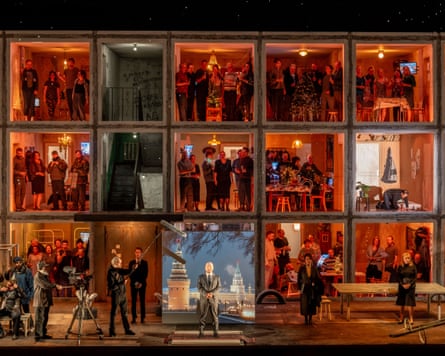
The Russian people – the narod, in Russian – are given powerful choral music by Mussorgsky, and alternate between lamenting their lot and erupting in fury. Serebrennikov said he wanted to show that the narod, in the end, was made up of individuals and explore what responsibility they had for their situation.
“In Boris Godunov, the narod is usually portrayed as a mass, all standing in a line, a background for the tsar. And I wanted to see these people, see every individual in the crowd, whether they are old or young, healthy or sick. This crowd is made up of individual personalities, though of course, when they gather together or when there is a time of war they can quickly turn into an aggressive mass,” he said.
Serebrennikov’s narod are the residents of his on-stage apartment block. As the action unfolds, they get on with their lives: drinking, having sex, arguing, celebrating. Men sign up for the army, women mourn the loss of their relatives who have gone to fight. All the time, the television flickers in the background, imparting its propaganda.
In this production, the first aria of Tsar Boris is a televised New Year’s Eve broadcast from the Kremlin, stage-managed by aides and then beamed into every apartment. Mussorgsky’s scenes in which the rapacious Polish nobility plans to conquer Russia is also reimagined, as a primetime show called The Conspiracy, filmed complete with US flags and shown in the homes depicted onstage to frighten them into believing a western plot against them.
The only apartment not to have a television is the one belonging to the Holy Fool, a fleeting but important character in the opera, who laments the state of Russia and speaks truth to the tsar. Serebrennikov reimagines the fool as a modern-day dissident, and also gives the character a series of spoken monologues not in the original opera, selected and edited from the courtroom speeches of Soviet-era and modern-day Russian dissidents.
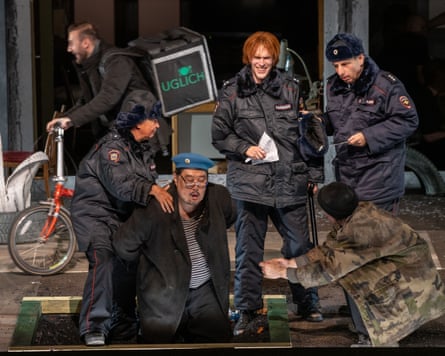
“Boris – this is my country, I don’t want to leave,” says the fool at one point, a dilemma experienced by many recent émigrés from Russia. “Many people have left, they have every right. But I ask myself, why am I the one who has to leave, and not you?”
The evocative images of the “real” Russia shown onstage come from the photographer Dmitry Markov. Serebrennikov, who was a friend, described him as “a phenomenal artist who shot Russia like nobody else did”. He commissioned Markov to shoot some scenes especially for the opera, but the photographer died last year, at the age of 41, before he was able to take the images, and Serebrennikov has devoted the production to him.
after newsletter promotion
Serebrennikov, who left Russia shortly after the full-scale invasion of Ukraine, had previously played an unusual role on the Moscow arts scene for many years, at once a provocative visionary and a darling of some in the elite. These contradictions came to a head in 2017, when he was accused of fraud and put under house arrest. His production of a ballet charting the life of the dancer Rudolf Nureyev was the hottest ticket of the season at the Bolshoi theatre. But when it opened in late 2017, with much of the Kremlin elite in attendance, the director was still under house arrest.
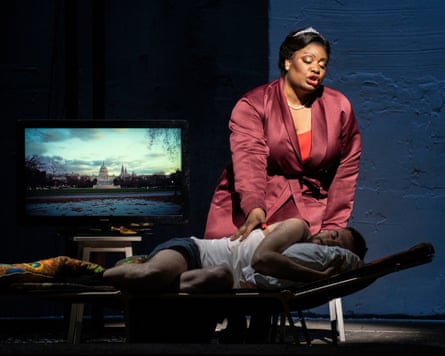
Since the invasion, these strange ambiguities have been ruthlessly ironed out of the Russian arts scene. Serebrennikov’s beloved theatre space, the Gogol Centre, was closed down, and many directors and actors have left Russia, unable to work in the new climate of rigid ideological orthodoxy.
Serebrennikov has called the war “a tragedy for Ukraine and a suicide for modern, open Russia”. He said with his Boris Godunov staging he wanted to explore the affects on Russian society of the brutal war.
“We see that the external aggression against another country also has an unexpected vector inside the country, people attacking each other. This is about physical violence and emotional violence, everything from domestic abuse to crime and murders. It’s about self-destruction, and that is what I wanted to make this opera about: how a thoughtless and senseless existence in the environment created by the authorities can lead to self-destruction,” he said.
It is a bleak vision, and Serebrennikov does not leave much room for hope, either in the opera’s grim finale or in his own thoughts about the future of Russia.
“Some people like to live with illusions, to live in hope. To say: ‘Everything will turn out OK.’ I don’t really understand this idea of hope and I don’t like to play these games. Why will everything turn out OK? Where is the evidence for this view? I believe in taking conscious, thought-through decisions, in trying to grasp and understand the reality as it is,” he said.

 8 hours ago
2
8 hours ago
2

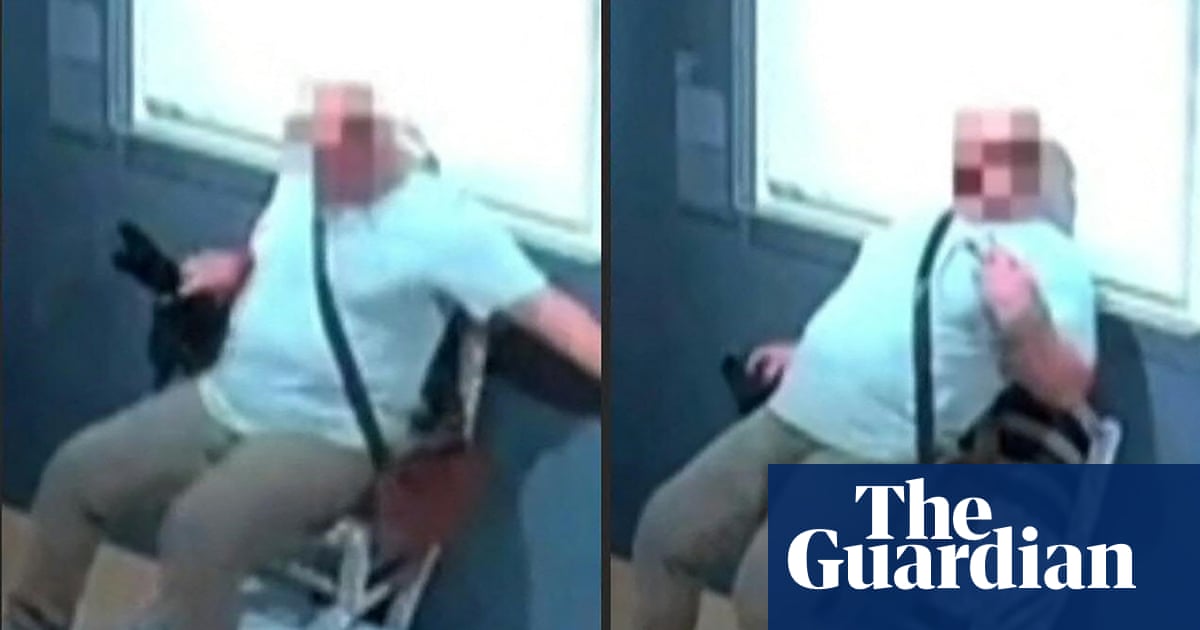
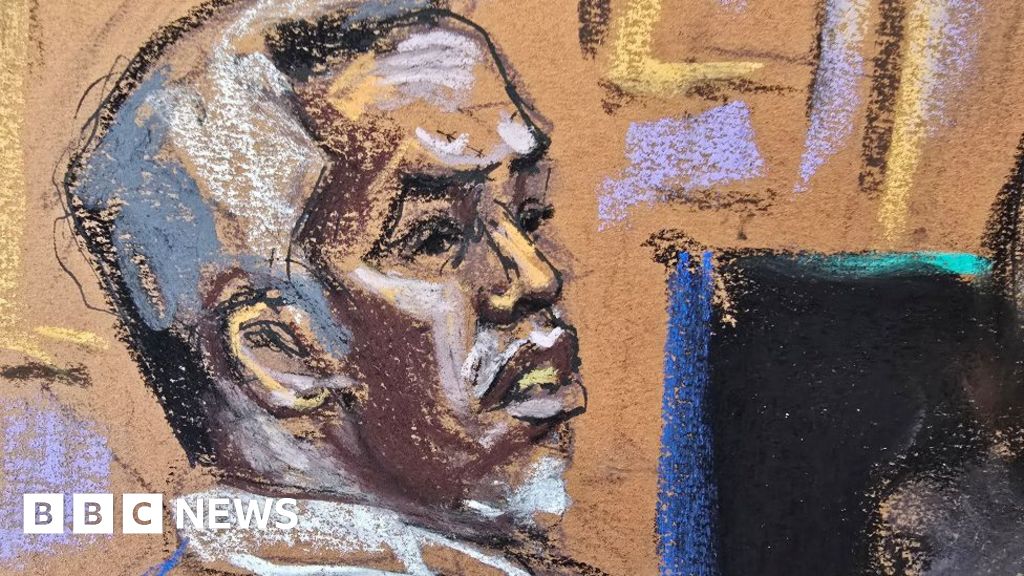


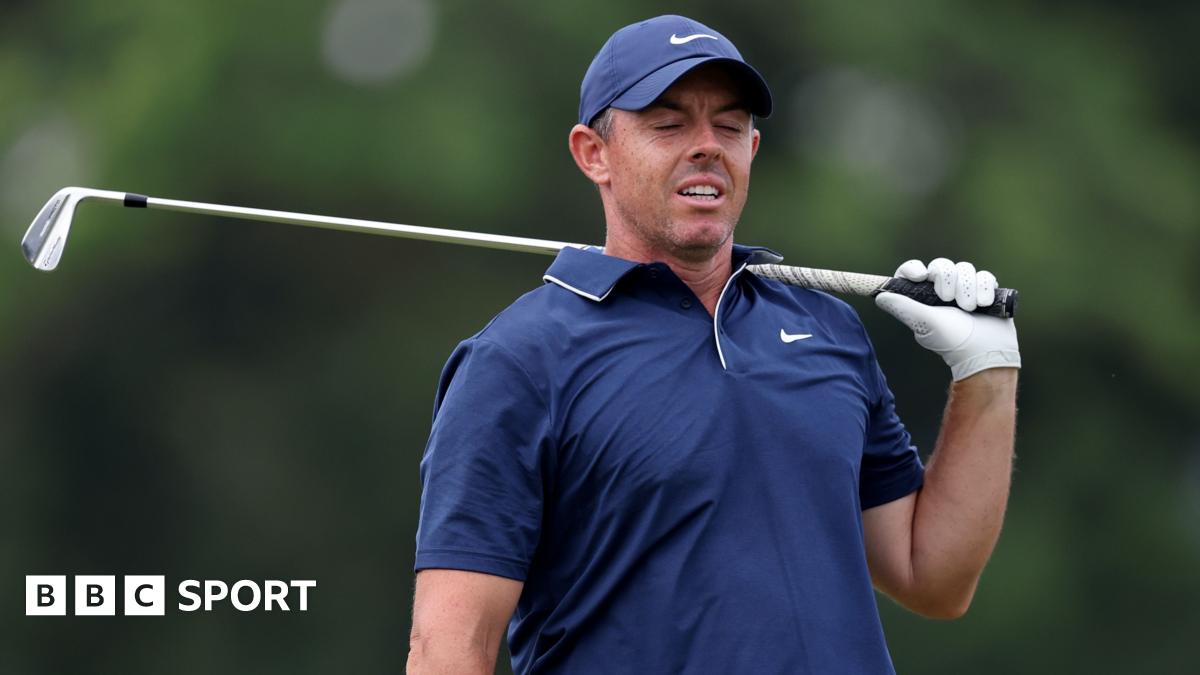
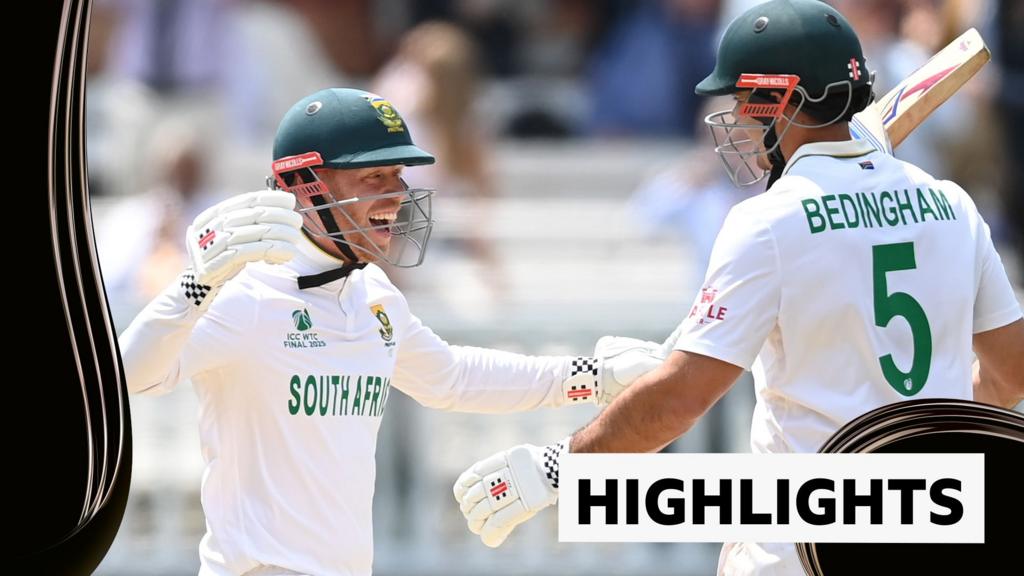
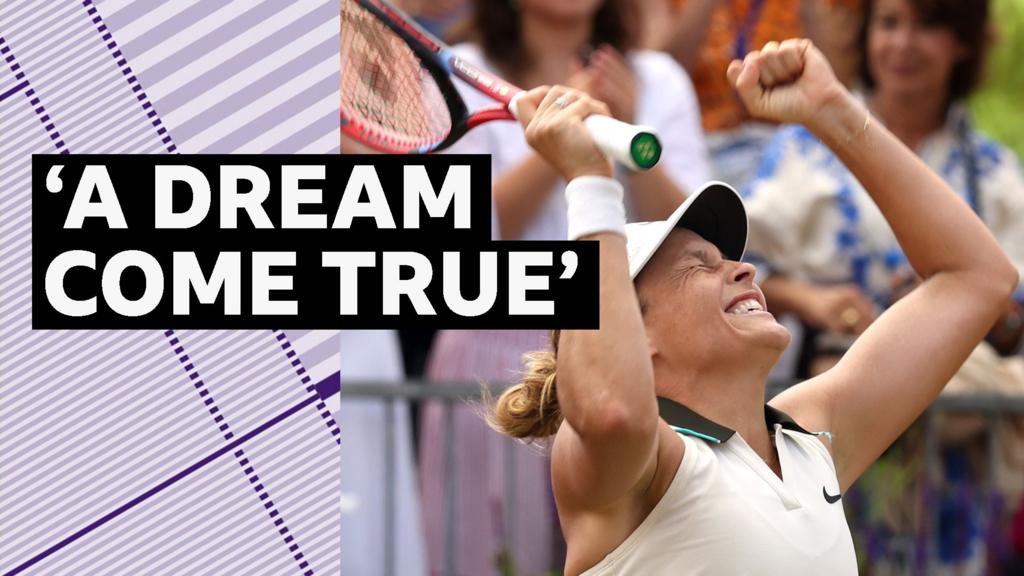


 English (US)
English (US)